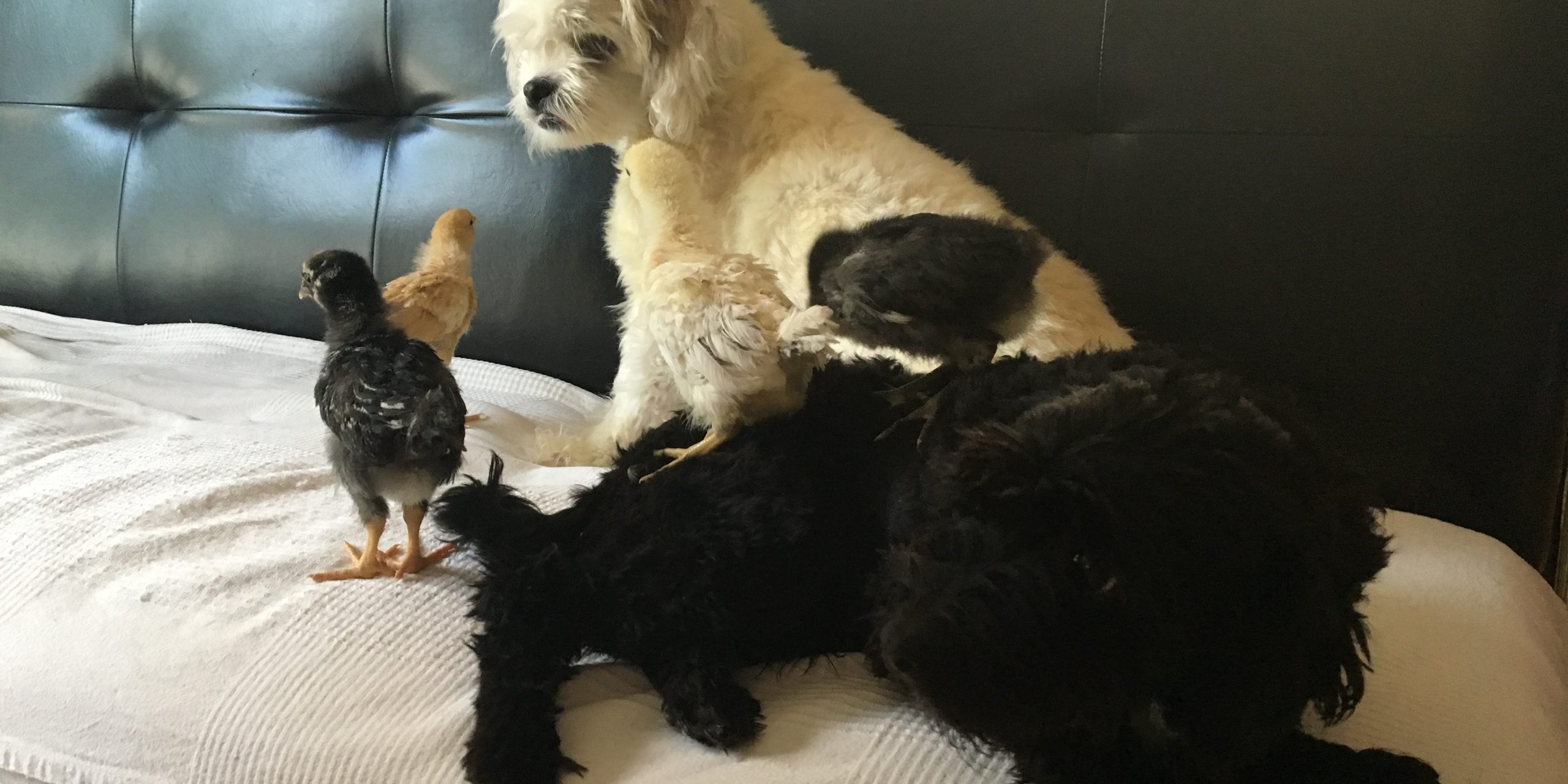

Who are we?
We are, first and foremost, followers of Jesus (Christians). We are a husband and wife team—James and Erica—who have been married for over twenty years and are raising a host of animals. Our only children are our dogs and cats.
We never could have imagined, when we first got married, that we'd one day live on a farm. Both of us were city slickers for most of our lives, so living in the country and raising animals has been a pleasant surprise and a huge blessing.
After many years of struggling with various autoimmune diseases, and being sick and tired of being sick and really tired, we decided to try something different. Doctors and medications weren’t working, and taking medicine only created the need for more medicine. After doing a lot of research, we decided that changing our diets and eating real food—food not laced with poisons and medications—might help us feel better and become healthier.
Not only did we start feeling better, but we also began to look better. Along with an organic diet, exercise, and leaving the traffic of the city behind (not to mention moving away from noisy and inconsiderate neighbors), we are much healthier and happier.
While caring for so many animals is a lot of work, they bring us joy, and we love taking care of them. All of our animals form a huge, healthy pack that gets along with one another—despite their species or breeds.
God is good! We love Him and are thankful for all He has given us. And we want to share it with as many animals as He entrusts to us. We also hope to be a blessing to others.
What is organic farming?
I've heard many people say that the whole organic "thing" is just a gimmick. Well, let’s take a moment to understand the word "organic." In a word, organic simply means "natural." When it comes to gardening and raising animals, it just means we leave things the way God made them—unadulterated and in their natural form.
In short, we don’t use chemicals or anything man-made on our farm. Our animals eat only organic feed and are never given medications.
So, what happens if our animals get sick? We use nature—naturally (no pun intended). The same thing applies to our plants. If disease creeps in, we use nature to deal with it. We use permaculture practices to keep our plants pest and disease-free.
So why do so many think organic is a gimmick? Well, to be certified as an organic farm, the government gets involved—and that’s where it can get a bit "tricky." How does one know if a farm simply hasn’t paid some fee to have an organic stamp placed on their produce or meat? The answer is, honestly, we don’t. This is why it’s a good idea to get to know your local organic farmer and see how they raise their livestock or grow their plants.
A lot of small local organic farms simply choose not to get the government involved because they can’t afford the huge cost of being "certified" organic. Most small-scale farms simply can’t afford it anyway.
The only way to know if what you’re getting is truly organic is to get to know your local organic farmer. Besides, at the end of the day, who do you think you can trust more—the large-scale farms that you will never meet and never see how they raise their meat or grow their vegetables, and who have the money to simply pay for the organic certification—or the small-scale local farms that allow you to come visit and see their animals and produce for yourself?
What's the big deal with Organic anyway? What's the difference?
What’s the big deal with organic anyway? What’s the difference? Well, the difference is good, whole, healthy food or highly medicated and chemically treated food that, once it’s all said and done, has little to no real nutritional value—and that can make you sick.
We don’t "really" know the long-term effects of eating food that has been sprayed with poisons or genetically modified to have poison already in the seeds, but what we do have is reasoning.
Before we genetically modified plants and sprayed our food with poison, we had less cancer, less dementia, and until about thirty years ago, we’d never even heard of autism. So, you figure it out.
I’m not saying (since I legally can’t) that these things are a causation, but no one can legally say they are not, since no one has tested it. You and your family are the test subjects. Right now, you are the study. What are the results showing us? After all, isn’t that how science is practiced?
We look at the long-term effects of things to determine whether or not it’s a causation. Well, all I know is that before we contaminated our food supply, we didn’t have these issues—at least, not as much as we do now.
We didn’t medicate our children to make them pay attention in class forty years ago. Children weren’t obese and diabetic. And Alzheimer’s, dementia, and autism weren’t the "norm" as they are today.
So, it’s up to you. All I can say is that since I’ve adopted an organic diet, I don’t go to the doctors as much, and we are healthier and have way more energy than we did when we were younger and ate those things. You just have to decide what’s best for your own family. Or, as I like to tell people, "Sure, organic is more costly, but it’s cheaper than copays, medications, and cancer."
I also like to tell people who question the organic lifestyle: If you love how you look and feel, then keep doing what you're doing. It’s working! But if you aren’t praising God when you look in the mirror or you can't go a day without some sort of pain medication, maybe it’s time to try something different.
Not convinced? Read our blogs on the subject.
What is a CSA? CSA stands for Community Supported Agriculture. It's where people in the local community help to support their local small-scale farmers by purchasing memberships to share in the harvest.
Once the farm is ready to harvest the CSA members will receive a portion of what is harvested. Either weekly or biweekly members receive a box full of produce, meat, eggs, or a combination of the three.
On A Proper Farm, we hope to share all three items with our members in Florida. We are currently taking a small number of members for our pork once the hogs are ready for processing. If you are interested please contact us to learn more.